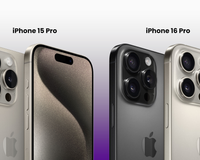It can be tempting to throw your electronic devices away the second they start showing signs of slowing down, because after all, there’s always a new and better one on the market, right?
We’re not sure about you, but this throwaway mindset can start to burn a pretty large hole in your pocket over time, plus it poses a massive threat to our planet. E-waste (electronic waste), is the world's fastest growing waste stream and is set to double in size by 2050.
So, instead of tossing and replacing your electronics for the most shiny, new device, consider looking for ways to extend their lifecycle such as repair or upcycling, and keep them out of landfill for longer. Saving you money and protecting our planet.
Repair vs. Upcycling vs. Recycling
Many people use terms like repair, recycle, and upcycle synonymously, but there are some critical differences between them. Let’s dive in.
Electronic repairs involve identifying the cause of a device’s malfunction, then fixing it so it works the way it was initially meant to.
Electronics upcycling involves using an old device to make something new, such as jewelry, decorations, furniture, etc. It’s different from recycling because recycling breaks items down to reuse them in the manufacturing process.

Why Should You Repair or Upcycle Your Electronics?
One of the best benefits of repairing and upcycling electronics is that they will last longer, saving you from spending your hard earned cash on an unnecessary upgrade.
Here some other reasons to repair or upcycle before you buy a new product:
- Prevent the accumulation of electronic waste in landfills (which contributes to greenhouse gas emissions and groundwater pollution)
- Conserve natural resources; minerals, metals, and oil are all regularly used to produce new electronic devices
- Support local and small business owners who specialize in electronics repair or upcycling
Repairing and upcycling also support the growth of a circular economy. This system is about making and buying less and instead reusing more of what is already in circulation. Whereas modern society has largely followed a take, make, waste mindset (known as a linear model), a circular economy or circular system involves reuse, repair, refurbishment, remanufacturing and recycling to create a closed-loop system.
Learn more about The Circular Economy and how it can beat climate change here.

Repair and Upcycling Tips to Extend the Lifespan of Your Electronics
Good news, you don’t have to be a tech genius to repair or upcycle your electronics! Here are some simple ways you can extend their lifespan, save money, and progress toward living a zero-waste lifestyle:
Diagnose the Problem
It’s easy to assume that when you experience an error with a device, it’s no longer usable. That’s not always the case, though.
Many issues can be resolved (often for much less than it would cost to replace the device altogether) with a bit of help from an expert.
If you’re not sure what’s wrong, try checking the user manual. Sometimes, your problem is listed in the manual with advice on how to handle it.
Reviewing the manual can also help you get more familiar with the different elements of your device. That way, you can describe the issue more clearly when you reach out for help.
Search for Video Tutorials
These days, many simple electronic repair videos are available online. These videos will take you step by step through the repair process and help you get your device up and running again.
If you’re confident in your ability to follow instructions and do things yourself, this is an affordable and efficient way to troubleshoot your device.
Support Local Repair Businesses
If you’re not confident in your repair skills, or if you would just feel more comfortable having a professional diagnose and address the problem, search for local repair businesses first.
Supporting local businesses allows you to give back to your city or town’s economy. You may also get your device back sooner since it’s not being shipped across the country for repairs.
Working with a local professional is also good for the environment because you’re not driving as far to get your device repaired. Furthermore, you don’t have to worry about the carbon emissions produced from shipping your device off to a repair shop that’s far from your home.
Donate Old Devices
If you’ve had a device for a long time and are ready for something new, consider donating your old one.
Many charitable organizations are happy to accept old but usable electronics. You can also donate them to schools, homeless shelters, refugee organizations, and other groups dedicated to helping those in need.
Before you donate your device, make sure you’ve cleared all your personal information from it. That way, you won’t have to worry about sensitive data getting into the wrong hands.
Resell Old Devices Online
Some people, including upcycling enthusiasts, are willing to buy old electronic devices whether they’re working or not. They will take your device apart and use the pieces to create something new.
Keep in mind that you likely won’t make much money from reselling your devices online -- especially if they’re not in good condition. However, it’s still better than tossing them in a landfill.
Repurpose Devices for New Projects
Another option is to try your hand at upcycling.
Don’t be afraid to get creative or try something new. You’d be amazed at all the different ways you can repurpose old electronics to create new items!
Electronics Upcycling in Action
If you’re interested in upcycling your old electronics but aren’t sure what to do or where to start, use these examples for inspiration:
- Make jewelry like this Etsy creator
- Make sculptures like this artist, who built “Mount Recyclemore”
- Make picture frames and other decorations like this Etsy creator
Whether you want to keep your creations or sell them online, there are lots of ways that you can upcycle electronics and ensure they don’t end up in landfills.
Reduce Electronic Waste Today
Repairing and upcycling electronic devices is an excellent way to minimize your carbon footprint, reduce e-waste, and avoid wasting money on new products you don’t need.
If you’re ready to stop throwing out old electronics, use the tips discussed above as a jumping-off point. Check out our other blog posts or join our community for more suggestions.

![The Best iPhones for battery life ranked [2025]](http://reboxed.co/cdn/shop/articles/IPHONE-BATTERY_e2de6230-b1d2-4348-ac33-e47d1e267bdd_100x80_crop_center@2x.jpg?v=1738489925)






